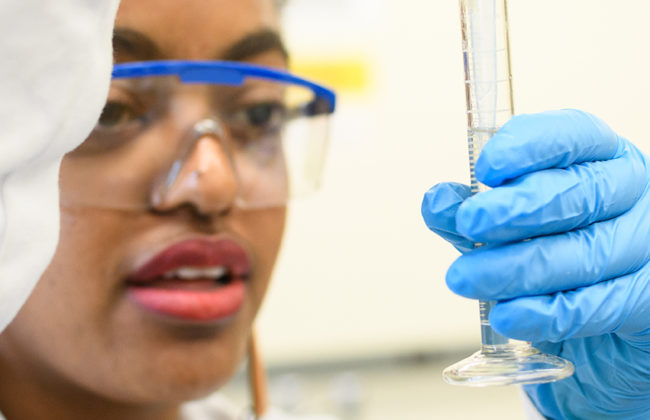Individual courses of study will obviously vary a great deal, but it is important to plan ahead as far as possible. The following points should be considered:
- Many advanced courses have prerequisite courses, so we advise you to take core chemistry courses early.
- Students intending to take the MCAT or GRE exams are advised to complete all core courses before sitting for the exam(s).
- Students interested in conducting research or an honors project need to complete Organic Chemistry (CHEM 131 and CHEM 132), Analytical Chemistry (CHEM 140), and Physical Chemistry (CHEM 260) by their junior year.
- It is important to take Calculus (MATH 120 and MATH 121) early, as it is a prerequisite for Physical Chemistry (CHEM 260).

Carving out Time for Research
By working with your academic adviser and developing your plan of study, you can make time for research opportunities during the academic year and over the summer.
